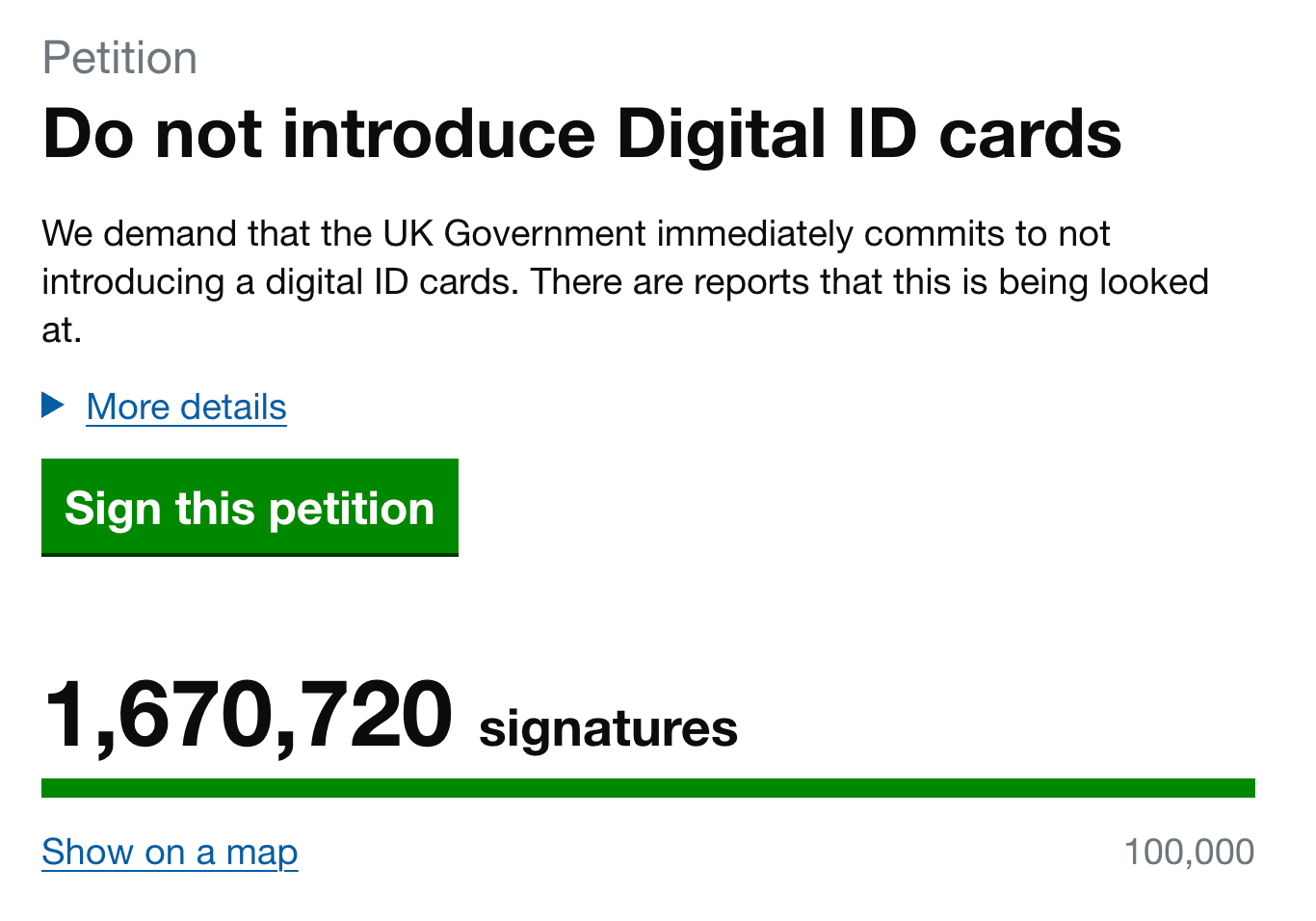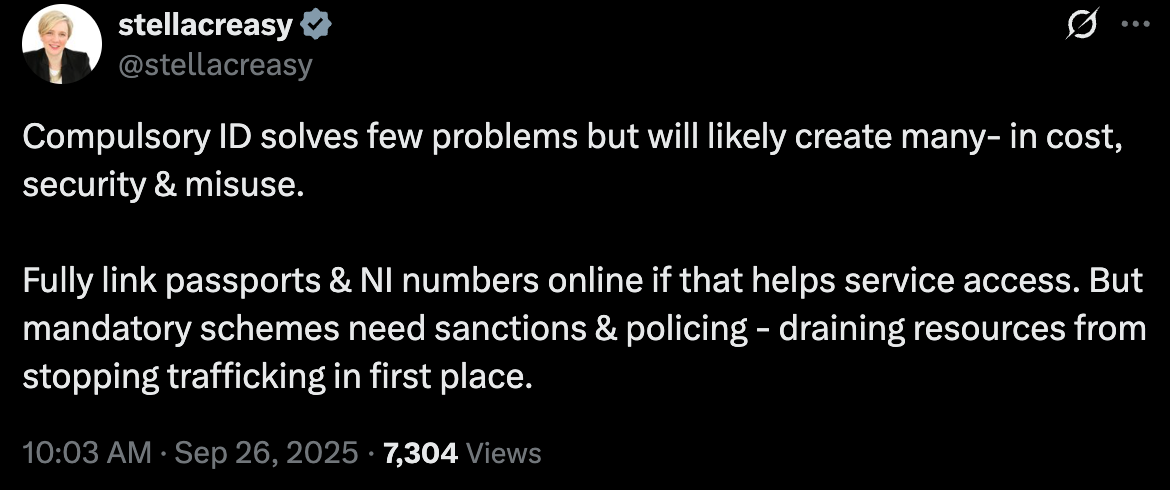Policy by Press Conference and Digital ID
The Policy Consultation That Never Happened
On 25th September 2025, Prime Minister Keir Starmer announced that “You will not be able to work in the United Kingdom if you do not have digital ID. It’s as simple as that”.
Within 24 hours, over 1.6 million people had signed a petition opposing the policy - suggesting this announcement caught both the public and Parliament off-guard
This policy affecting millions of people was announced without formal consultation with a single constituency. Nor was the policy in the Labour manifesto.
Cross-Party, Cross-Constituency Rebellion
Unlike typical partisan divides, digital ID opposition spans the entire political spectrum:
Conservative: Kemi Badenoch stated her party “will oppose any push by this organisation or the government to impose mandatory ID cards on law-abiding citizens”.
Reform UK: Nigel Farage declared “It will make no difference to illegal immigration, but it will be used to control and penalise the rest of us”
Liberal Democrat: The party launched a campaign stating “We fought against Labour’s plans for ID cards, and we won. We will fight tooth and nail to oppose these plans too”
Labour Backbench Unrest: Multiple Labour MPs have publicly distanced themselves from the policy on social media, despite it coming from their own government
Civil Liberties Coalition: Eight civil liberties groups, including Liberty and Big Brother Watch, wrote jointly to oppose the scheme, warning it would require citizens to “surrender vast amounts of personal data to be amassed into population-wide databases”
The Manifesto Gap
Digital ID cards appeared nowhere in Labour’s 2024 election manifesto, raising questions about democratic mandate. The Institute for Government notes that “Keir Starmer confirmed in a BBC interview in early September that this was back under consideration” - suggesting even recent policy development lacked structured consultation.
Regional Variations Ignored
Polling shows the complexity that constituency-level consultation would have revealed:
Age Divide: 66% of over-55s support ID cards vs 51% of 16-34 year-olds (source)
Digital Divide: 63% don’t trust government to keep digital ID data secure (source)
Support Drops on Specifics: While 57% support “national ID cards,” only 38% support “digital ID cards” when details are explained (source)
These variations likely map differently across constituencies - rural areas with older populations and limited digital infrastructure will have different concerns than urban tech hubs.
Local Democracy Matters
This policy has all of the signs of a process gone wrong:
Cross-party opposition from Conservative, Reform UK, Liberal Democrat, and Labour backbench MPs
1.6 million petition signatures in just 48 hours
No manifesto mandate - this major policy appeared nowhere in Labour’s 2024 election platform
Implementation challenges - regional variations in digital infrastructure and public trust weren’t considered
This controversy demonstrates exactly what Suffrago exists to address. People clearly want to engage with policy-making - the petition response proves that. But when major policies are announced without local consultation, that engagement becomes reactive opposition rather than constructive input.
Suffrago’s focus on constituency-level polling and local democratic engagement shows there’s an appetite for better policy development. The digital ID debate will have geographical and demographic divisions that constituency-level consultation could have identified and addressed before announcement.
When policies affect everyone, policy by press conference creates political backlash. The public backlash isn’t anti-democratic - it’s democracy demanding to be heard.




